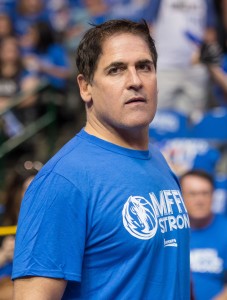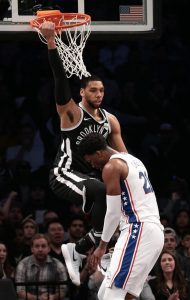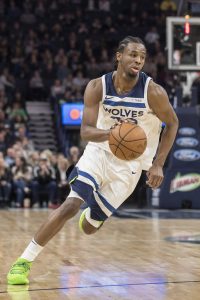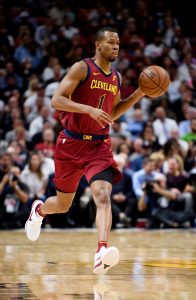NBA teams have now completed the brunt of their offseason work, with the draft and free agency practically distant memories. Still, with training camps more than a month away, most clubs around the league have at least one or two outstanding issues they’ve yet to address.
We’re in the midst of looking at all 30 NBA teams, separating them by division and checking in on the key outstanding question that each club still needs to answer before the 2018/19 regular season begins.
After focusing on the Atlantic, Central, and Southeast last week, we’re heading to the Western Conference this week, starting with the Southwest…
 Dallas Mavericks
Dallas Mavericks
When will the investigation into allegations of misconduct in the Mavericks’ workplace wrap up?
It was way back in February that an SI.com report revealed a seemingly corrosive workplace culture in the Mavericks‘ business offices, prompting the team to hire outside counsel to look into the issue. Six months later, that investigation has yet to conclude.
The probe into alleged misconduct within the Mavs’ organization may not have any real impact on the on-court product in Dallas, and it didn’t scare away free agents this summer — the club landed DeAndre Jordan, one of the top players on the market. Still, Mark Cuban‘s organization needs to repair its image, so the Mavs figure to take steps to address the investigators’ findings once the outside firm has finished its work.
While there’s no specific timeline for the completion of the investigation, I’d be surprised if it’s not done by the time the Mavs play their first regular season game of 2018/19.
Houston Rockets
Will they be able to acquire another veteran wing player?
After coming within a game of the NBA Finals this spring, the Rockets are zeroed in on beating the Warriors in 2018/19. As they showed in the Western Conference Finals against Golden State, the best way to attack the defending champs is with a series of three-and-D wings who are capable of making corner threes after Chris Paul and James Harden break down the defense, and who can slow down the Dubs’ perimeter scorers on the other end of the court.
Houston lost two of those players – Trevor Ariza and Luc Mbah a Moute – this offseason, and while they brought in veterans like James Ennis and Carmelo Anthony, the Rockets really could use another reliable wing. They’re said to be in the market for a player who fits that bill, dangling Ryan Anderson and a draft pick in trade talks.
Given Anderson’s exorbitant salary, the Rockets have to target well-paid vets as they scour the trade market, so players like Kent Bazemore and J.R. Smith have been cited as potential targets. Nicolas Batum, DeMarre Carroll, Courtney Lee, Danilo Gallinari, Marvin Williams, and Wesley Matthews are among the other players who could appeal to Houston and who shouldn’t be untouchable.
Although a trade remains possible, the Rockets may have to strike within the next month or so, before training camps get underway. Teams will become more reluctant to shake up their rosters once they’ve brought players to camp.
Memphis Grizzlies
Who will be traded or released in order to finalize the 15-man roster?
The Grizzlies currently have 15 players with fully guaranteed salaries for the 2018/19 season. They also have a 16th player – Andrew Harrison – whose salary is non-guaranteed but who appears likely to make the regular season roster. In other words, Memphis may end up trading or waiving someone with a guaranteed contract.
Memphis will have until mid-October to make a roster decision, but based on the team’s offseason moves and the nature of certain players’ contracts, there aren’t many viable candidates to be cut.
Dakari Johnson, acquired in a financially motivated trade with the Magic, is the likeliest release candidate on the roster, but waiving him would leave the Grizzlies pretty thin at center behind Marc Gasol. The club would have to be confident that Jaren Jackson Jr. can contribute in his rookie season or that a forward like Ivan Rabb or JaMychal Green can slide to the five.
 New Orleans Pelicans
New Orleans Pelicans
How many players do the Pelicans intend to carry to start the season?
As we noted on Sunday, the Pelicans have 12 players on fully guaranteed salaries. That leaves up to three spots on the club’s roster for the regular season, and there are several legit NBA players who figure to be in the mix for those spots.
A pair of Okafors will be seeking a place in the frontcourt rotation, with both Emeka Okafor and Jahlil Okafor on partially guaranteed deals. On the wing, Troy Williams and DeAndre Liggins will look to stick in New Orleans after bouncing from team to team in recent seasons.
If the Pelicans don’t make any other additions to their NBA roster this offseason, they could carry three of those players on their 15-man roster, leaving just one of the four on the outside looking in. However, if New Orleans prefers to retain a little roster flexibility, the team could enter the season with an open roster spot. That would likely mean carrying just one of the two Okafors, as well as one of Williams or Liggins. In that scenario, we could see some pretty fierce roster battles in training camp and the preseason.
San Antonio Spurs
Will Manu Ginobili be back for one more season?
Tim Duncan is gone. Tony Parker is gone. Kawhi Leonard is gone. But Manu Ginobili is still a Spur. Now, it’s just a question of whether or not the NBA’s second-oldest player wants to play out the final season of his current contract with the franchise.
If Ginobili was a free agent this offseason, the threat of retirement might loom a little larger, but at this point in the summer, I’d be a little surprised if the veteran guard decides he didn’t want to return for the second season of the two-year deal he inked last summer.
Assuming Ginobili is back – which seems like the safe bet for now – the Spurs’ roster for 2018/19 should essentially be set. The 41-year-old figures to announce his plans in the coming days or weeks.
Photos courtesy of USA Today Sports Images.
 Dallas Mavericks
Dallas Mavericks New Orleans Pelicans
New Orleans Pelicans
 Houston Rockets (11 guaranteed contracts): In addition to their 11 fully guaranteed contracts, the Rockets also figure to hang onto
Houston Rockets (11 guaranteed contracts): In addition to their 11 fully guaranteed contracts, the Rockets also figure to hang onto